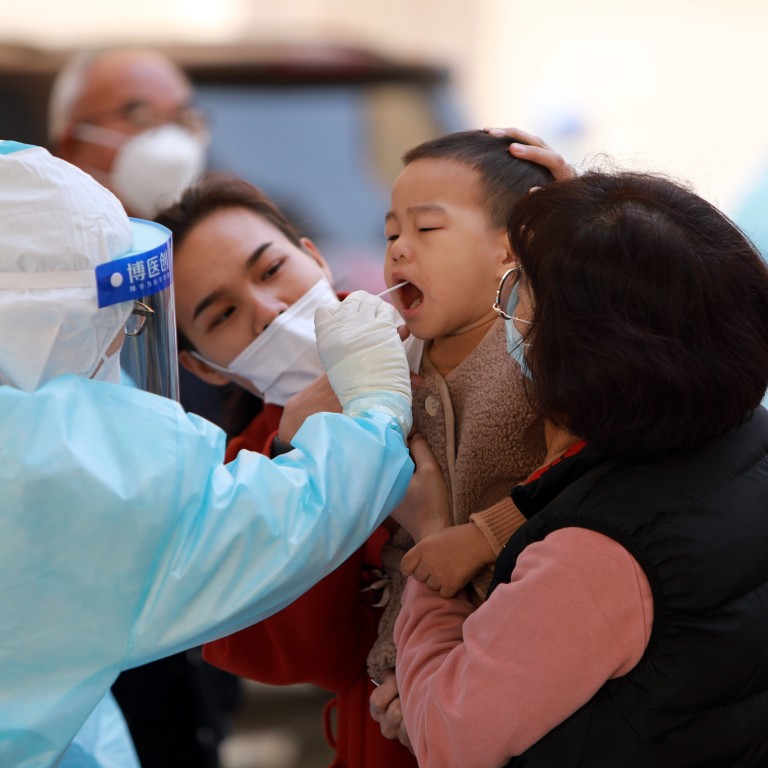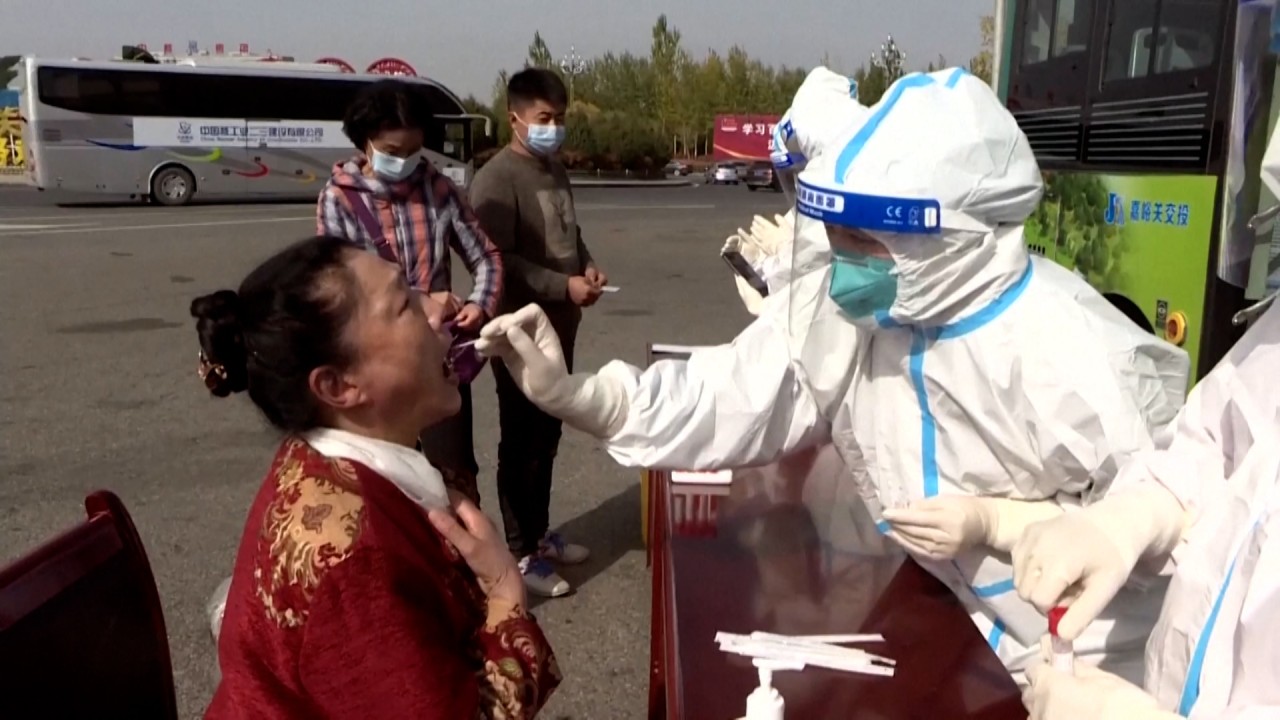
Record 93 cases in single day as China’s Delta outbreak worsens
- A quarter of the new infections were reported in the northeastern province of Heilongjiang near Russian border
- National Health Commission reports moving seven-day average of new cases is also rising, with 17 areas now affected
There were also 11 asymptomatic infections, according to the National Health Commission, which are not counted in the official tally.
The moving seven-day average of new infections is also on the rise, indicating the outbreak is worsening. Infections have spread across China, prompting local authorities to impose localised lockdowns and block entry to anyone at risk of carrying the coronavirus, including residents.
What next for zero-Covid China, as herd immunity faces Delta hurdle?
Many of the cases had recently travelled to tourist areas, using trains that run across the country.
The northeastern province of Heilongjiang, where a separate chain of transmission was discovered, contributed 35 cases to Wednesday’s toll, more than any other province, municipality or autonomous region. All of these cases were confined to the city of Heihe, on the border with Russia, the commission said.
The Heilongjiang cases arose from an infected traveller to the province from outside China and had not spread to other parts of the country, but the risk remained that they could do, the commission warned.
The Heihe government ordered shopping centres, supermarkets and convenience stores to close from Wednesday and announced that it will arrange for packaged necessities and food to be delivered to homes.

01:00
Chinese mainland reports 23 locally transmitted Covid-19 cases
Officials also said in a press conference that vulnerable people, such as the elderly, would be sent an anti-epidemic gift pack, and volunteers mobilised to help relatives of frontline health workers unable to care for their families because of their work.
The tough response taken by some local officials has been criticised for failing to account for the old and poor. Ruili, a border city in the southwestern province of Yunnan, became the archetype of these hardline policies after it endured four lockdowns – lasting about seven months in total – since September last year.
Four people tested positive for the coronavirus in Chongqing on Tuesday, the first symptomatic community cases found in the southwestern metropolis since July 30.
In the north, Ejina Banner in the Inner Mongolia autonomous region has largely controlled its outbreak, reporting only six new cases for Tuesday after eight rounds of mass testing in the two previous days. The border region was hit with a large number of infections at the beginning of the current wave when a local restaurant, visited by tourists from other parts of China, was identified as the source of a cluster.
“You cannot kill off the virus, but we can minimise the harm of infections resulting from it,” the country’s top respiratory diseases expert Zhong Nanshan told the state-run China Daily newspaper.
Why is the Delta coronavirus variant quicker to make people sick?
In Hebei province, northern China, three officials were sacked for their “inadequate” efforts to control the outbreak. Among them were the deputy mayor and health chief of Shenze county, who joined a long line of office-holders dismissed because of their poor performance against the pandemic.
Shenze county, in the provincial capital Shijiazhuang, reported 11 cases on Tuesday, with 19 people returning preliminary positive tests for the virus, after three successive days of single-digit infections.
Sales of train tickets to Beijing from 123 stations in 23 areas reporting Covid-19 cases had been suspended as of Tuesday, Cui Wei, passenger service director of the China Railway Beijing Group’s epidemic office, said.
The capital has reported 39 local cases in the latest wave of infections, which mainly spread within families and groups that gathered to play chess and cards, according to Pang Xinghuo, deputy director of Beijing’s disease control centre.

